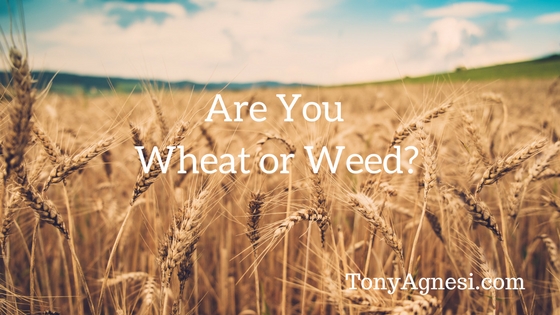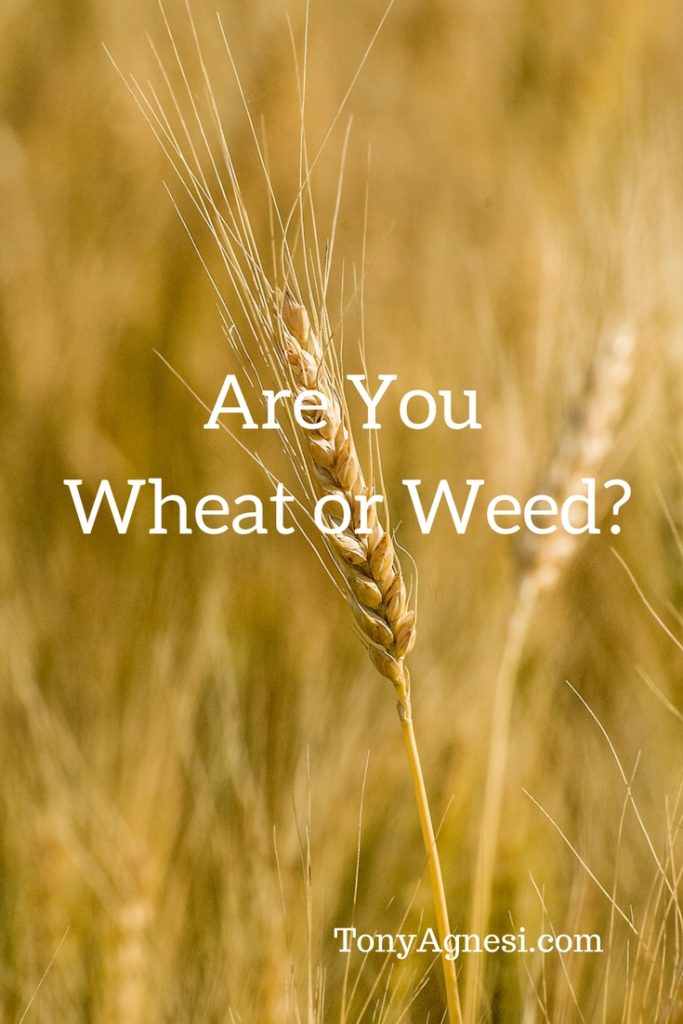 Then, dismissing the crowds, he went into the house. His disciples approached him and said, “Explain to us the parable of the weeds in the field.” He said in reply, “He who sows good seed is the Son of Man, the field is the world, the good seed the children of the kingdom. The weeds are the children of the evil one, and the enemy who sows them is the devil. The harvest is the end of the age, and the harvesters are angels. Just as weeds are collected and burned [up] with fire, so will it be at the end of the age. The Son of Man will send his angels, and they will collect out of his kingdom all who cause others to sin and all evildoers. They will throw them into the fiery furnace, where there will be wailing and grinding of teeth. Then the righteous will shine like the sun in the kingdom of their Father. Whoever has ears ought to hear. — Matthew 13:36-43 (NAB)
Then, dismissing the crowds, he went into the house. His disciples approached him and said, “Explain to us the parable of the weeds in the field.” He said in reply, “He who sows good seed is the Son of Man, the field is the world, the good seed the children of the kingdom. The weeds are the children of the evil one, and the enemy who sows them is the devil. The harvest is the end of the age, and the harvesters are angels. Just as weeds are collected and burned [up] with fire, so will it be at the end of the age. The Son of Man will send his angels, and they will collect out of his kingdom all who cause others to sin and all evildoers. They will throw them into the fiery furnace, where there will be wailing and grinding of teeth. Then the righteous will shine like the sun in the kingdom of their Father. Whoever has ears ought to hear. — Matthew 13:36-43 (NAB)
The parable of the wheat and the weeds has much to teach us of the kingdom of heaven. Jesus lived in an agrarian time. Farming, seeds, weeds, and harvesting were all part of their daily lives.
At that time there were weeds that resembled wheat stocks and were sometime unidentifiable until later in the growing season. During the gowning season it is difficult to distinguish between what is wheat and what are weeds. The farmer, knowing this, waits until harvest and separates the wheat from weeds. The wheat is placed in the barn and the weeds are burned.
Jesus explains to His disciples that He is the sower of the seed and the devil is the sower of the weeds. It is difficult to distinguish the difference. Jesus says that they will be separated at the end of the age, that He will send angels to collect the wheat and burn the weeds.
As we go about our daily lives we are surrounded by both good and bad people. Some people are wheat and others weeds. And just like the parable, it is difficult to distinguish between the two. The person sitting next to you at church might be a weed and the person you meet in a bar might be wheat! We just never know.
So then, my beloved, obedient as you have always been, not only when I am present but all the more now when I am absent, work out your salvation with fear and trembling. For God is the one who, for his good purpose, works in you both to desire and to work. — (Philippians 2:12:13 NAB))
That’s why we shouldn’t be judgmental. As we learn in an earlier chapter of Matthew (7): We need to stop judging, that we might not be judged. The farmer at the end of the growing season will judge what is wheat and what are the weeds to be burned. Only God, at the end of the world, will decide who goes to heaven and who goes to hell.
So are you wheat or a weed?
Sometimes it is hard to tell! Whenever we feel like we are doing great, sin raises its ugly head and we feel like a weed. That’s why we must never be self-righteous and think that we are better than others. For the same reason, when we judge others we are playing God. In the end, only God will be the judge.
That is why we must work out our salvation in fear and trembling.
Let’s take care not to be self-righteous or judgmental. Let’s not worry about what others are doing or not doing, let’s concentrate on what God is asking us to do as we work out our own salvation.
This week, in prayer, let’s ask ourselves, “Am I being wheat or a weed?”

Thank you for sharing my stories with your family and friends. Below are links to share on your social media sites. Your sharing my stories helps to get the word out.
Get an autographed copy of A Storyteller’s Guide to a Grace-Filled life at the new reduced price and free domestic shipping. Just click on the link below.